Jewish History: World War II

Rosa Schapire
Rosa Schapire was one of the few women to pursue art history studies at a time when the discipline itself was still in its infancy. Her foray into this male-dominated profession was indicative of her allegiance to feminist aspirations to equal opportunity and adult suffrage.
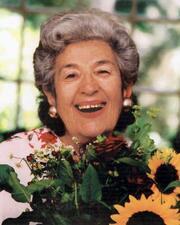
Miriam Schapiro
Miriam Schapiro helped pioneer the feminist art movement, both through her own pushing of creative boundaries and by creating opportunities for other women artists. Starting in 1970, Schapiro raised women’s consciousness through her writing, painting, printmaking, teaching and sculpture. She lectured extensively on feminist issues to professional conferences, university audiences, art classes and women’s groups.
Dorothy Schiff
Dorothy Schiff led many lives, from debutante to social reformer, but she is best remembered as the publisher of the New York Post, the first woman to run a New York newspaper. Her publishing philosophy was simple: The Post must avoid “narrow-mindedness, prejudice, and all the things it is the business of liberals to fight.”
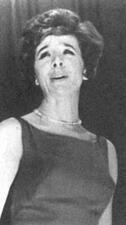
Martha Schlamme
Martha Schlamme was an internationally known singer who rose to prominence after the Second World War due to her phenomenally large repertoire and ability to sing in multiple languages. Schlamme studied piano in Austria before the war and had a successful post-war career in England, singing on BBC radio, before immigrating to the United States and singing in nightclubs and concert halls across the country.
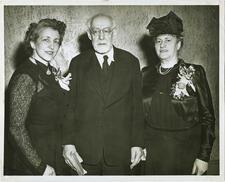
Ottilie Schönewald
Deeply involved in several women’s and Jewish organizations, Ottilie Schönewald was an activist who became a politician to advance her causes. She worked with the League of Jewish Women and helped Jews emigrate from Nazi Germany. After Schönewald and her family fled in 1939, she continued her social work during and after the war.
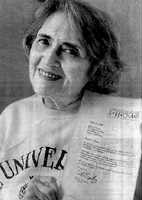
Denise Schorr
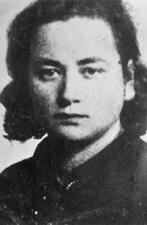
Hela Rufeisen Schüpper
Born to a hasidic family in Krakow, Hela Rufeisen Schüpper joined the Zionist youth movement Akiva against her family’s wishes. When the Germans invaded Poland, Schüpper joined the Jewish resistance against the Nazis, becoming a key courier. She survived Bergen-Belsen and moved to Israel after the war.
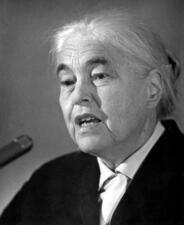
Anna Seghers
Anna Seghers is considered one of the most important German women writers of the twentieth century. Her many novels and stories written during her multiple exiles, including Das siebte Kreuz (1942) adapted into the Hollywood film “The Seventh Cross,” reflect her strong socialist and anti-fascist beliefs, and she remains controversially linked to her later involvement with the East German government.
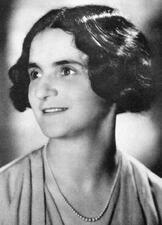
Toni Sender
Toni Sender’s wide-ranging quest to save the world led her from the union hall to the German Parliament (as a socialist) and finally to the United Nations. She helped found Germany’s Independent Social Democratic Party (USPD) and served in the German Parliament from 1924 to 1933. After fleeing to the United States in 1933, she joined the board of the German American Council for the Liberation of Germany from Nazism, and after 1944 she became active with the UN, retiring in 1956.

Ada Ascarelli Sereni
Ada Ascarelli Sereni helped thousands of Jews emigrate to Palestine during and after World War II following the death of her husband, a Jewish volunteer for the British army who parachuted into Nazi-occupied Europe.
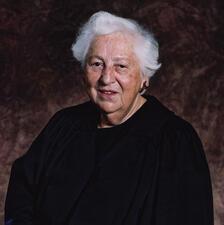
Alice Hildegard Shalvi
Israel Prize Laureate Professor Alice Shalvi was a leading Israeli feminist activist and scholar. Founder of the Israel Women’s Network and the Ben Gurion University English Department and longtime principal of the iconic religious feminist high school Pelech, Professor Shalvi was instrumental in advancing gender issues in Israeli education, society and politics.
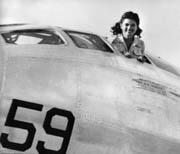
Gertrude Shapiro
She'erit ha-Peletah: Women in DP Camps in Germany
Family played an important role in the lives of Holocaust survivors in DP (displaced persons) camps – in 1947, the birth rate in DP camps was one of the highest in the world. Women served as teachers and eager students, and they were active in the effort to open immigration to Palestine.

Sarah Shner-Nishmit
Polish author and historian Sarah Shner-Nishmit traveled constantly to evade capture during World War II, working at a labor camp and joining a partisan group. Shner made aliyah in 1947 and subsequently began her writing career, which included children’s books and historical research. She also helped found Kibbutz Lohamei ha-Getta’ot, where she lived until her death.
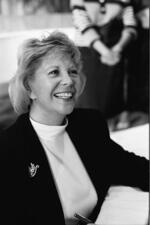
Dinah Shore
Dinah Shore, the quintessential American girl, was both America’s sweetheart in the 1940s and 1950s and a leading example of an independent woman in the 1970s. Her career as a singer and actress spanned over forty years and included stints on the radio and in the movies. Shore won nine Emmys, a Peabody, and a Golden Globe.
Rose Shoshana
Rose Shoshana began her acting career in the Yiddish theater world, playing Manke in Got fun Nekome in 1908. She went on to perform across Europe, America, and Asia. When she arrived in New York in 1946, she began a career as a novelist, writer, translator, and journalist at the Forverts.
Lillie Shultz
Lillie Shultz poured her boundless energy into all aspects of her life. She was a journalist, a Zionist, a champion of the oppressed, a skilled administrator, and a businesswoman.
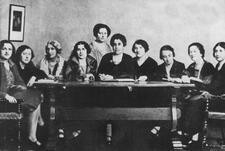
Rebecca Sieff
Rebecca Sieff, the daughter of a wealthy Jewish family from Manchester, England, played an active role in two central social-historical movements: the struggle for women’s rights and the Zionist movement that eventually led to the establishment of the State of Israel.
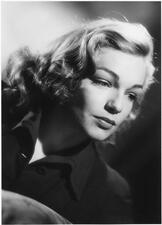
Simone Signoret
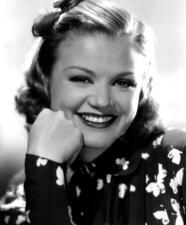
Simone Simon
Simone Simon was a prolific international film star, known for her iconic appearance and voice. Simon spent her childhood in Marseilles and Madagascar and attended schools in Berlin, Budapest, and Turin before making her film debut in 1931. She became popular in France and Hollywood for her mysterious, vulnerable, and seductive acting style, and made over thirty-eight feature films in her career.
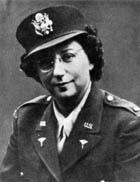
Frances Slanger
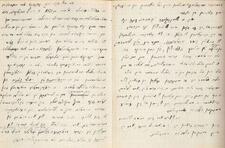
Cecila Slepak
Cecilia Slepak, a journalist and translator, was a member of the Oneg Shabbat group, which was vital in collecting records and interviews about life in the Warsaw Ghetto. She focused in particular on the lives of women in the ghetto as they struggled to survive.
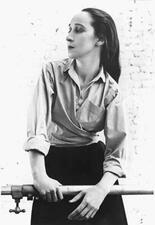
Anna Sokolow
Anna Sokolow (1910-2000), an American dancer and choreographer of Russian-Jewish descent, danced with the early Martha Graham Company and created many international dance-theater works of social and political significance.

Eva Sopher
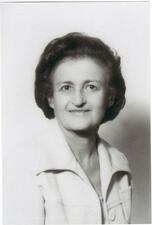
Johanna Spector
Johanna Spector was an influential ethnomusicologist whose writings, recordings, and film projects documented the music of little-studied Jewish communities from around the world. After surviving the Holocaust, Spector earned her doctorate, founded the ethnomusicology department at the Jewish Theological Seminary, established the Society for the Preservation of Samaritan Culture, and served as president of the Asian Music Society.


